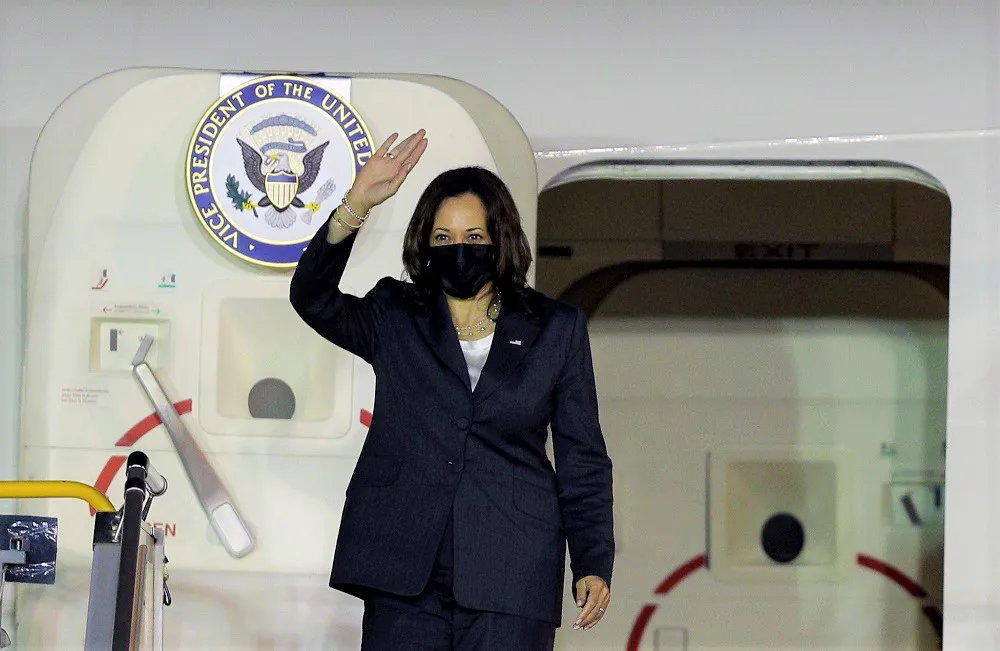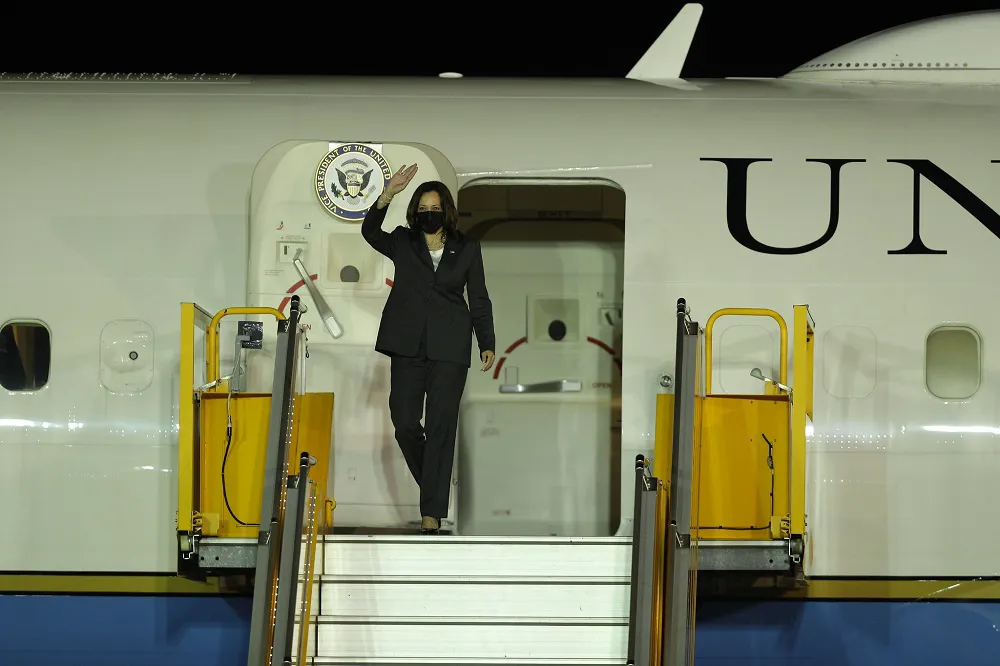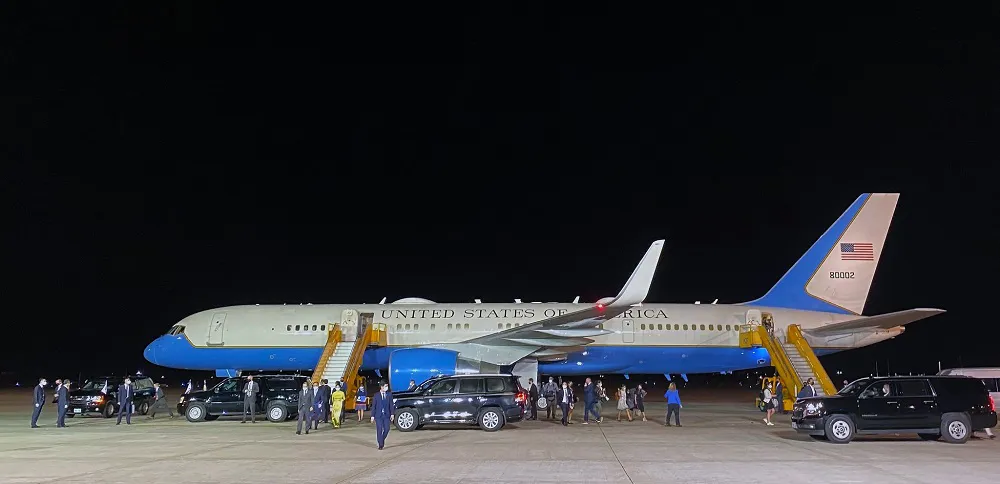Kamala Harris arrives in Hanoi
Harris is expected to have a wide range of topics in Vietnam but whom she will meet remain unannounced.
US Vice President Kamala Haris has landed at the Noi Bai International Airport in Hanoi to start the three-day visit to Vietnam.
| US Vice President Kamala Harris arrives at Noi Bai International Airport, Hanoi late Tuesday [August 24]. Photos: US Embassy in Hanoi |
Harris departed Singapore more than three hours late than scheduled because of concerns about “a recent possible anomalous health incident”, according to the US Embassy in Hanoi.
Initially, her plane was planned to take off at 4:00 PM local time.
Harris is expected to have a wide range of topics in Vietnam but whom she will meet remain unannounced.
Speaking in Singapore prior to the Hanoi visit, Harris said the partnerships in Southeast Asia and throughout the Indo-Pacific are top priority to the US.
For that reason, “We will invest our time and our energy to fortify our key partnerships, including with Singapore and Vietnam.”
“Our partnerships will be grounded in candor, openness, inclusiveness, shared interests, and mutual benefits,” she added.
| Her arrival is more than three hours late than scheduled. |
Harris noted that the Indo-Pacific is critically important to the US security and prosperity as some of Washington’s closet allies and strongest partners are in the region.
Regarding the South China Sea (SCS), she said Beijing continues to coerce and intimidate, and to make claims to the vast majority of SCS and its actions continue to undermine the rules-based order and threaten the sovereignty of nations.
“The US stands with allies and partners in the face of these threats,” Harris said, noting that Washington’s engagement in SCS and the Indo-Pacific is not against any one country nor designed to make anyone choose between countries.
She highlighted that the US and the region’s participation and partnership are for economic ties as the Southeast Asian countries represent the US's fourth largest export market, being “a vibrant and dynamic market.”
| The delegation at the airport. |














